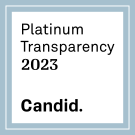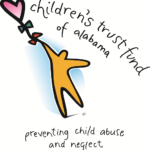 Sleep and addiction recovery seem to have a cyclical relationship. When you’re in recovery, especially in the early stages, it can be more difficult to get quality sleep. And when you’re not getting the sleep you need, it makes recovery even harder than it otherwise would be. Plus, sleep deprivation can result in a slew of mental and emotional health issues that increase the likelihood of relapse.
Sleep and addiction recovery seem to have a cyclical relationship. When you’re in recovery, especially in the early stages, it can be more difficult to get quality sleep. And when you’re not getting the sleep you need, it makes recovery even harder than it otherwise would be. Plus, sleep deprivation can result in a slew of mental and emotional health issues that increase the likelihood of relapse.
Just because sleep problems are a common side effect of withdrawal, however, doesn’t mean that you can’t do anything about it. In fact, you should do something about it since sleep is critical to your recovery. Let’s look at some proven methods that can boost your sleep habits, foster your mental and emotional health, and aid your fight against addiction.
Eating Sleep-Friendly Dinners
What you eat and drink can make a big difference in how well you sleep. Spicy foods, fatty foods, and caffeine, for example, can make it more difficult to fall asleep and stay asleep. Along with not drinking coffee or other caffeinated drinks after lunchtime, try to stick with sleep-friendly dinners and late-night snacks. Certain foods even have chemical properties that can help induce sleep. Some examples include whole-grain crackers, almonds, cheese, fish, and bananas.
Replacing Your Mattress
An aging mattress can make it hard to get a good night’s sleep. If you’ve had the same mattress for many years and it’s showing signs of wear, it’s probably time to shop for a new one. And you no longer need to visit a mattress store to make a purchase. There are many bed-in-a-box options available today, which have gained in popularity over traditional mattresses, and most online companies provide generous trial periods and free shipping. Purple, known for its innovative materials, is one of the more notable brands, and their mattresses garner great reviews and are noted as being reasonably priced; their mattresses range from $699 to $1,299, depending on the size. Purple is just one example of the many options available to you, so shop around and look for a mattress that fits your sleep style and firmness needs to ensure maximum comfort.
Using Essential Oils
Aromatherapy is used for several different reasons. This holistic treatment involves essential oils which are naturally extracted from plants. The aroma from these oils is believed to significantly benefit mental health and emotional health, though it’s often associated with physical health benefits as well.
There are many different ways to use essential oils, such as diffusers, inhalers, bathing salts, facial steamers, aromatic spritzers, and more. Adding aromatherapy to your bedtime routine is a great way to wind down and prepare for sleep.
Using Other Natural Remedies
Along with essential oils, there are other natural remedies that can improve your sleep habits. For instance, Mayo Clinic notes St. John’s wort can be made into a tea to alleviate depression symptoms like anxiety and insomnia. Valerian root can help as a short-term solution for sleeplessness, as it promotes relaxation and can help you fall asleep faster. Moreover, melatonin supplements can benefit your sleep as well, though it’s best not to use them as a long-term solution.
Working Out
Finally, exercising is one of the best habits to have in addiction recovery. The endorphins released in the brain during physical activity renders a rewarding sensation, and exercise is known to boost mood and self-confidence. But exercise also plays a role in sleep habits. When you exercise on a regular basis, you have more energy throughout the day, and your mind and body are more prepared for sleep after that energy has been exerted.
Getting adequate sleep is essential for addiction recovery. Remember to get a new mattress if necessary, and incorporate essential oils and other natural remedies into your bedtime routine. Also, try to stick with foods and drinks that won’t hinder your sleep, and start exercising on a regular basis. Recovery is difficult enough, so be sure to address sleep deprivation if it’s a problem for you.
Image via Unsplash
About the Author:
Ryan started Recovery Proud, an independent ebook publisher, to connect people in rehabilitation with tools that can help them get clean, stay sober, and build a meaningful existence. Visit Recovery Proud HERE.








